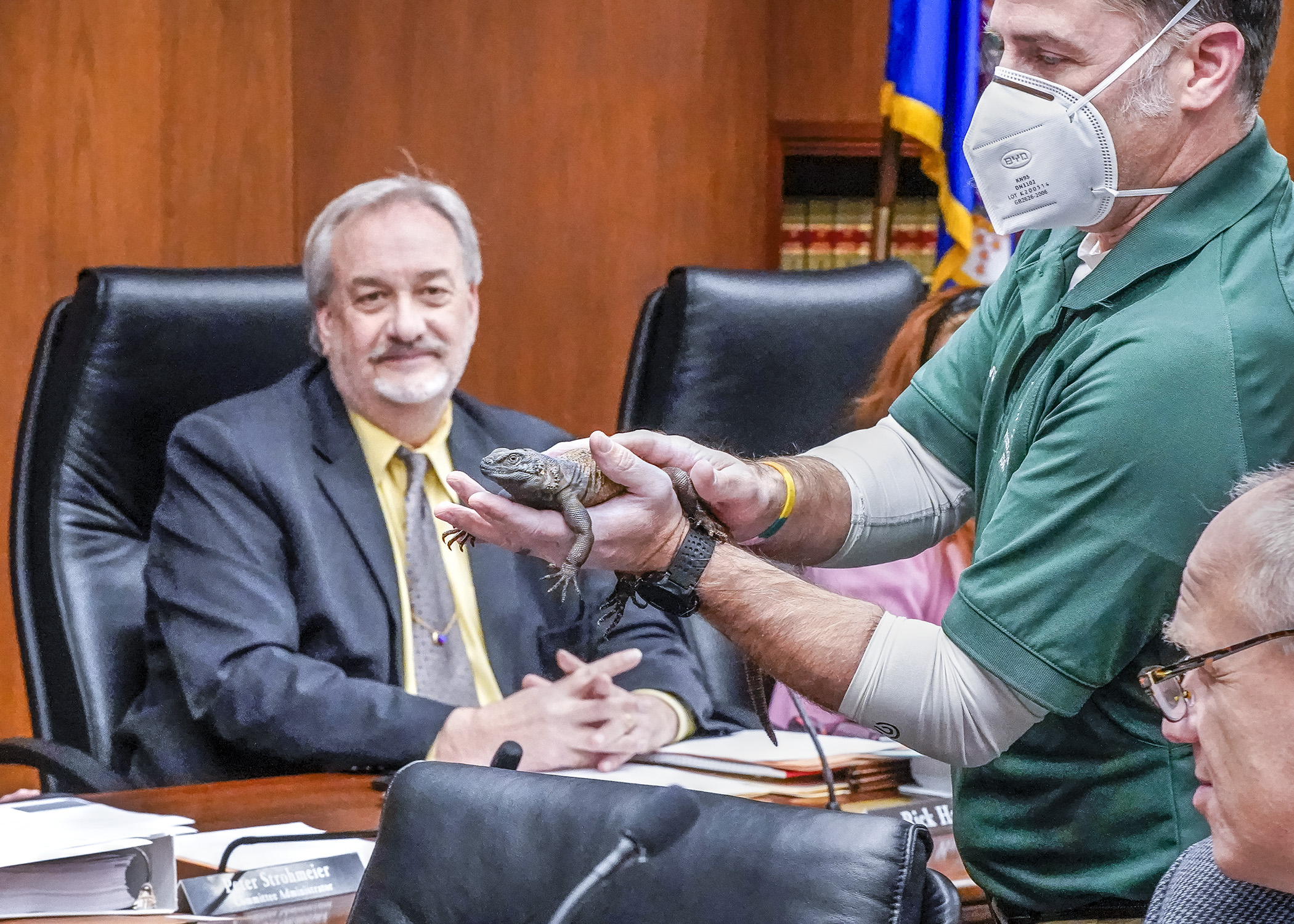Accessibility — as much as creature comforts — behind a $28 million Minnesota Zoo request

Chuckwallas are a stocky, pot-bellied lizard covered in black and brown scales with a 100% vegetarian diet and an ability to defend themselves by diving into crevices, expanding and becoming impossible to extract. They are usually found in the southwestern United States.
And Wednesday in a House hearing room.
Chuck (also known as Wally) came with staff from the Minnesota Zoo and Rep. Robert Bierman (DFL-Apple Valley) to the House Environment and Natural Resources Finance and Policy Committee to present a budget request.
Bierman sponsors HF462, which was laid over after being amended. The bill would appropriate $27.55 million from the General Fund in the next biennium and $190,000 each year from the Natural Resources Fund for the zoo.
The request represents an increase of $3 million per year to maintain current levels. The cost of feed, medicine and supplies for 5,000 animals, along with rising utility, road maintenance and staffing costs impose challenges to the operating budget, said director John Frawley.
One-third of the zoo’s operating budget comes from the state; the rest is through contributions and earned income such as memberships, gate fees and food, drink, and clothing sales.
The first $850,000 would be dedicated to upgrading security and safety, matching funds the zoo is already putting into the project, which includes installing badge readers, improving emergency communications, expanding security camera coverage and replacing outdated analog phones.
Zoo leaders want to maintain operations without raising entrance fees, like other zoos have. For example, the Indianapolis Zoo doubled ticket prices to $32.95 between 2019 and 2022, according to the zoo’s budget request presentation.
“In our experience, once you increase prices you can’t go back,” Frawley said.
The zoo has taken many steps to be accessible, Frawley said, such as moving away from one free workday per week to a program offering free visits for people on an assistance program. In a typical year, 90,000 Minnesotans visit at no cost through the Free to Explore program.
In addition to the operations funding increase, $18 million in capital investment, mostly for asset preservation and $1.23 million to update the 40-year-old animal hospital at the zoo is in the bonding bill currently in the House Capital Investment Committee. Frawley assured the zoo will work with partners like the University of Minnesota to build an institution serving all of Minnesota, not just the Minnesota Zoo.
Related Articles
Search Session Daily
Advanced Search OptionsPriority Dailies
Speaker Emerita Melissa Hortman, husband killed in attack
By HPIS Staff House Speaker Emerita Melissa Hortman (DFL-Brooklyn Park) and her husband, Mark, were fatally shot in their home early Saturday morning.
Gov. Tim Walz announced the news dur...
House Speaker Emerita Melissa Hortman (DFL-Brooklyn Park) and her husband, Mark, were fatally shot in their home early Saturday morning.
Gov. Tim Walz announced the news dur...
Lawmakers deliver budget bills to governor's desk in one-day special session
By Mike Cook About that talk of needing all 21 hours left in a legislative day to complete a special session?
House members were more than up to the challenge Monday. Beginning at 10 a.m...
About that talk of needing all 21 hours left in a legislative day to complete a special session?
House members were more than up to the challenge Monday. Beginning at 10 a.m...